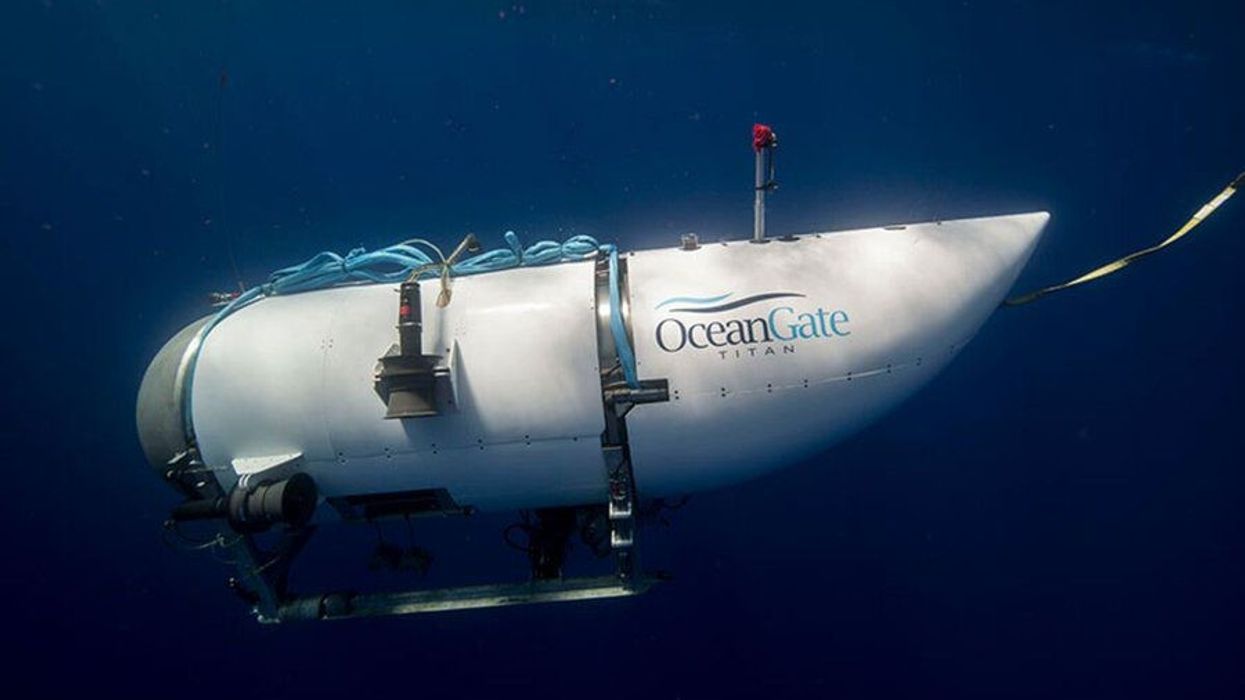Alleged safety concerns and a focus on "innovation" are being scrutinised in relation to the deep-sea implosion that resulted in the deaths of five individuals aboard the Titan submersible.
As more information emerges about the incident, questions arise surrounding exploration company OceanGate Expeditions and their purported cavalier approach to safety.
Reports indicate that the doomed vessel released weights during its descent, but it remains unclear whether this action was part of standard procedure or an attempt to abort the doomed mission.
The implosion occurred within milliseconds, killing all five occupants.
Rob McCallum, an experienced submersibles expert who had previously raised concerns about OceanGate, explained to The Guardian that submersibles often drop weights to control buoyancy.
However, he said the exact details surrounding the weights dropped before the implosion could only be determined by reviewing the dive log.
Submersibles lack flight data recorders, relying on communication between the submersible and the surface vessel.
Therefore, unless the log reveals any concerns, the exact circumstances leading to the implosion may never be fully understood.
McCallum, who has operated commercial submarines, emphasised the need for hardwired controls to avoid signal failures.
The New Yorker published an extensive feature that highlighted industry members' efforts to warn about OceanGate's submersibles before the tragedy.
However, government authorities and OceanGate allegedly did not act upon these warnings.
Around 2015, OceanGate expressed interest in Titanic exploration and approached veteran submersibles expert McCallum to run their operation.
McCallum visited OceanGate's workshop and reviewed their first submersible, Cyclops I, but raised concerns about its design and safety features.
However, despite providing advice, McCallum chose not to be involved due to safety concerns, including the submersible's launch and retrieval procedures.
In an email to McCallum in 2018, OceanGate co-founder Stockton Rush defended their “innovative” approach and dismissed safety concerns as attempts to hinder competition.
He wrote, “Since Guillermo [Söhnlein] and I started OceanGate we have heard the baseless cries of ‘you are going to kill someone’ way too often.”
He added, “I take this as a serious personal insult.”
The submersible, named Titan (formerly Cyclops II), faced multiple points of failure and used Bluetooth for its control system.
Additionally, David Lochridge, a pilot for Cyclops I, left OceanGate after expressing safety concerns. Lochridge submitted a written report detailing his worries, which led to his termination.
He filed a safety claim with the US Occupational Safety and Health Administration (OSHA), alleging retaliation.
However, though OSHA informed the US Coast Guard about the complaint, there is no evidence of follow-up action.
OceanGate did not respond to requests for comment, and the US Coast Guard has not provided a comment at this time.
Concerns about the submersible's safety were also raised by individuals who participated in expeditions aboard the Titan.
Even a friend of Rush, Karl Stanley, who participated in an expedition aboard the Titan near the Bahamas in April 2019, expressed concerns about the submersible's safety. Stanley reported hearing disturbing noises during the voyage, indicating potential issues with the vessel.
The unfolding details cast a spotlight on OceanGate's alleged safety approach and its purported dismissal of concerns from industry experts, raising questions about the tragic incident and the company's response to safety issues.




